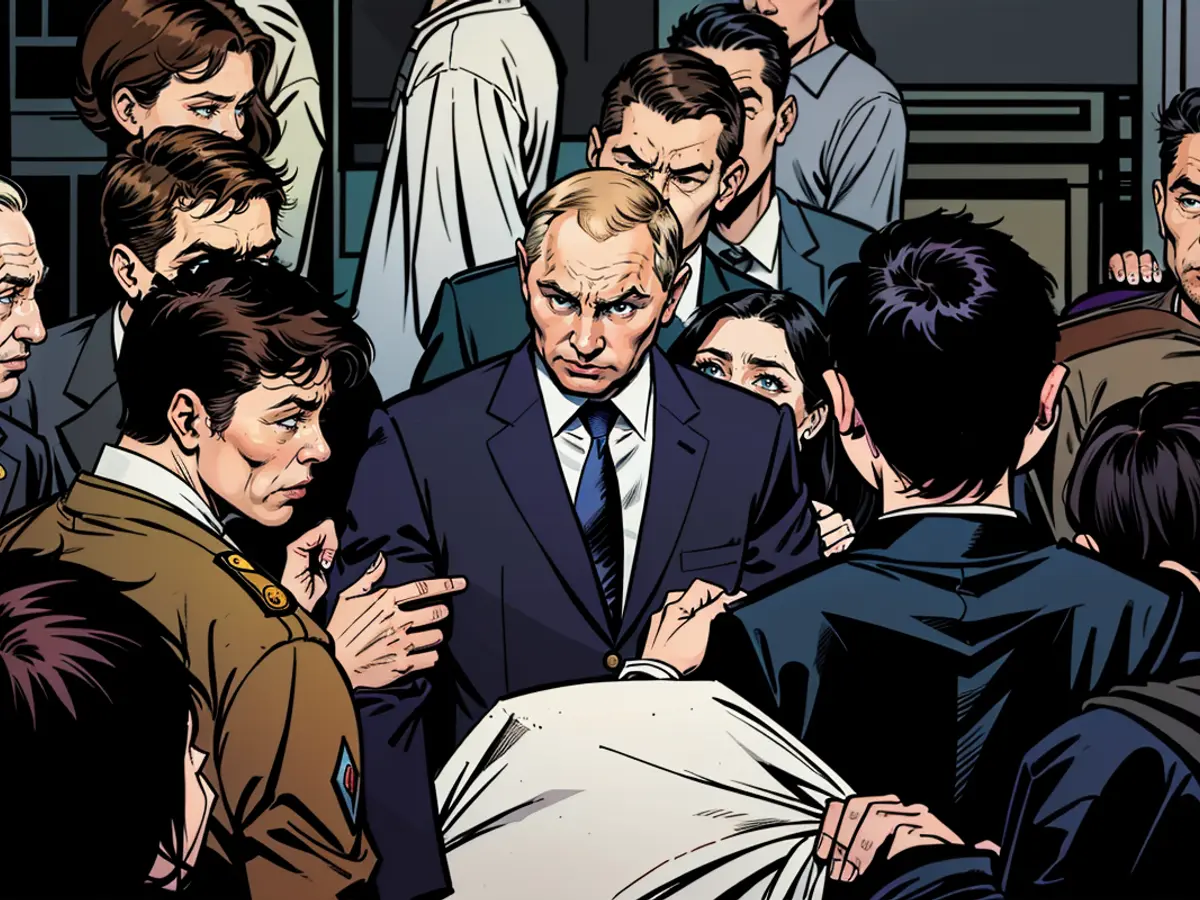Russian President Vladimir Putin journeys to Vietnam, aiming to secure backing amidst Western estrangement.
Labeled a pariah by Western nations, Putin aims to strengthen economic relationships with countries friendly to him, demonstrating that the West's isolation tactics aren't having the planned effect.
Putin's visit to communist Vietnam has been a point of contention for the United States, with a US Embassy in Hanoi spokesperson reportedly criticizing the trip, stating, "no nation should provide Putin with a platform to promote his acts of armed aggression and in turn legitimize his atrocities," as reported by Reuters.
Putin's planned two-day visit to Southeast Asia includes meetings with Vietnamese leadership, such as Communist Party General Secretary Nguyen Phu Trong and President To Lam, according to the Russian state-run news agency TASS, citing the Kremlin.
Similar to his visit to Pyongyang, Putin's trip to Hanoi may signal an intensification of ties between the two nations as the Russian leader seeks to secure substantial backing amid international sanctions related to his prolonged conflict in Ukraine.
Vietnamese Ambassador to Russia Dang Minh Koi told the Vietnam News Agency that the state visit will improve Hanoi-Moscow relations and serve as an opportunity for leaders to discuss and propose concrete actions to boost trade and economic cooperation.
A joint statement is expected to be released and numerous agreements are set to be announced on cooperation in sectors including "trade and economic, scientific, technological and humanitarian areas," according to Russian presidential foreign policy aide Yury Ushakov, as reported by TASS.
Moscow has served as a significant supplier of weapons to Vietnam since the Soviet era, and analysts claim that arms and energy discussions might be a focus of the talks.
Vietnam's foreign policy route enables the country to enjoy friendly relations with competing major powers, such as Russia, the United States, and China, all of whom are crucial trade partners. Last year, Vietnam hosted both Chinese leader Xi Jinping and US President Joe Biden.
This visit resulted in the US and Vietnam upgrading their diplomatic ties to a "comprehensive strategic partnership," marking a significant improvement in relations between the former adversaries. The two nations have increased trade in recent years, and the US is currently reviewing an upgrade to Vietnam's market economy status, which would enable Hanoi to take advantage of reduced tariffs on imported goods.
Vietnam plays a critical role in US efforts to counter the growing Chinese influence in the region and is a key component of Washington's Indo-Pacific strategy. In turn, Vietnam aims to benefit from American initiatives to diversify supply chains beyond China and US concerns over China's military buildup in the South China Sea.
The two nations have cultivated their partnership just decades after a devastating war that ravaged the country. According to Le Hong Hiep, senior fellow of the Vietnam Studies Program at Singapore's ISEAS – Yusof Ishak Institute, "from the Vietnamese standpoint, Russia remains an important ally with deep historical links and significant roles in Vietnam's defense and security policy."
However, Hiep also pointed out that "Vietnam is also cautious not to be perceived as being overly close to Russia or supporting Russia in Ukraine..." The US and its allies play a more significant part in Vietnam's security and economic development.
Putin faces an arrest warrant issued by the International Criminal Court (ICC) in connection with an alleged scheme to deport Ukrainian children to Russia. Vietnam and Russia are not members of the ICC.
Vietnam abstained from participating in a global summit on Ukraine in Switzerland last week alongside several Southeast Asian countries. Despite Western hopes, a socially isolated Russia seems to be an unlikely outcome as Putin expands his international engagements and attempts to establish a new global order in opposition to the West.
In May, Putin met Xi in Beijing – his first overseas trip since starting his new term as Russia's president – where the two leaders agreed to deepen their strategic partnership in opposition to the US. Now, Putin is visiting two of China's neighbors, as per US national security spokesman John Kirby's Monday statement, which described the visits as a "charm offensive" following the leader's re-election.
Crucially, Moscow assumed the rotating presidency of the China-Russia-backed BRICS economic group this year and will host member and observer countries in its southwestern city of Kazan in October. Over thirty countries seek entry into the bloc, and Russia will be the first member to oversee the body since it significantly expanded its global influence earlier this year, when Iran, Saudi Arabia, the United Arab Emirates, Ethiopia, and Egypt officially joined.
For Moscow and Beijing, expanding the BRICS is widely perceived as a drive to create a new world order by transforming the economic grouping into a geopolitical counterweight to the West and Western institutions dominated by the US, such as the G7.
Malaysia is the latest country preparing to join the group, according to Prime Minister Anwar Ibrahim, as reported in Chinese media on Tuesday. Vietnam has expressed an interest in joining BRICS, with a Foreign Ministry spokeswoman stating in May that "we pay attention to the process of the BRICS membership expansion," as reported by Vietnamese state media. Last week, Vietnam dispatched a delegation led by its Deputy Minister of Foreign Affairs to attend the BRICS Foreign Ministers’ Summit in Russia.
Read also:
Putin's visit to Vietnam serves as an example of his efforts to strengthen economic relationships with nations in Asia, aiming to mitigate the effects of Western sanctions. The world is watching as Vietnam, being friendly to both Russia and the United States, balances its relationships with both major powers.







